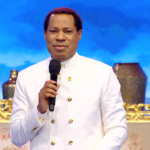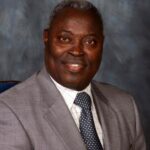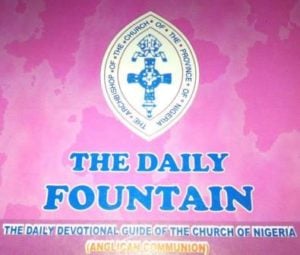Liturgical Readings for : Friday, 20th September, 2024
Friday of the Twenty-Fourth Week in Ordinary Time, Year 2
Memorial of Ss Andrew Kim Tae-gon, priest,
Psaul Chong Ha-sang and Companions, Korean martyrs.
(Please see below the readings and reflections for their story)
FIRST READING
A reading from the first letter of St Paul to Corinthians 15:12-20
If Christ has not been raised then your believing it is useless.

If Christ raised from the dead is what has been preached, how can some of you be saying that there is no resurrection of the dead? If there is no resurrection of the dead, Christ himself cannot have been raised,
and if Christ has not been raised then our preaching is useless and your believing it is useless; indeed, we are shown up as witnesses who have committed perjury before God, because we swore in evidence before God that he had raised Christ to life.
For if the dead are not raised, Christ has not been raised, and if Christ has not been raised, you are still in your sins. And what is more serious, all who have died in Christ have perished. If our hope in Christ has been for this life only, we are the most unfortunate of all people.
But Christ has in fact been raised from the dead, the first-fruits of all who have fallen asleep.
The Word of the Lord Thanks be to God
Responsorial Psalm Ps 16
Response I shall be filled, when I awake, with the sight of your glory, O Lord.
1. Lord, hear a cause that is just, pay heed to my cry.
Turn your ear to my prayer: no deceit is on my lips. Response
2. I am here and I call, you will hear me, a God. Turn your ear to me; hear my words.
Display your great love, you whose right hand saves
your friends from those who rebel against them. Response
3. Hide me in the shadow of your wings. As for me, in my justice I shall see your face
and be filled when I awake, with the sight of your glory. Response
Gospel Acclamation Ps 94: 8
Alleluia, Alleluia!
Harden not your hearts today’ but listen to the voice of the Lord.
Alleluia !
Or Mt 11: 25
Alleluia, Alleluia!
Blessed are you, Father, Lord of heaven and earth,
for revealing the mysteries of the kingdom to mere children.
Alleluia
GOSPEL

The Lord be with you. And with your spirit
A reading from the Gospel according to Luke 8:1-3 Glory to you, O Lord
With Jesus went several women who provided for them out of their own resources.
Jesus made his way through towns and villages preaching, and proclaiming the Good News of the kingdom of God. With him went the Twelve, as well as certain women who had been cured of evil spirits and ailments:
Mary surnamed the Magdalene, from whom seven demons had gone out,
Joanna the wife of Herod’s steward Chuza,
Susanna, and several others who provided for them out of their own resources.
The Gospel of the Lord Praise to you, Lord Jesus Christ
********************
Gospel Reflection Friday, Twenty Fourth Week in Ordinary Time Luke 8:1-3
Today’s gospel reading presents us with a picture of Jesus and the twelve disciples travelling in the company of certain women who provided for Jesus and the twelve out of their own resources. They were clearly women of means, who had resources that they could place at the disposal of Jesus and his closest associates. He, in turn, must have been grateful to have been supported and provided for in this way. In his life of service of others he had no opportunity to provide for himself in a material way and he was dependent on the generosity and hospitality of others. This group of women played a key role in giving Jesus the freedom to do God’s work by supporting him materially and financially.
The gospel reading calls on us to imitate the women by using our material resources to further the work of God and the coming of God’s kingdom. These women can inspire us to use what we have been given to serve the Lord and his people. The Lord needed the service of these women and he needs the service of women and men of faith today.
___________________________
The Scripture Readings are taken from The Jerusalem Bible, published 1966 by Darton, Longman & Todd Ltd.
_________________________________________
Summary of todays Memorial: Catholicism came to Korea almost totally by lay evangelisation. The canonisation of the Korean martyrs by Pope John Paul II in 1984 was the first to take place outside of Rome.
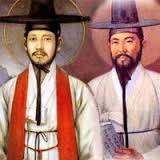
<< The image shows Fr Andrew Kim Taegon, Korea’s first Catholic priest and Paul Chong Hosang, martyrs .
Patrick Duffy tells their story here.
First Christian presence
The first known Christian presence in Korea was a Portuguese Jesuit priest, Father Gregorius de Cespedes, who arrived in Korea in 1593 to work among Japanese expatriates, but he was not allowed work with Koreans. A decade later, however, the Korean diplomat Yi Kwangjong came back from Beijing with a world atlas and several theological books written by the Jesuit missionary to China, Matteo Ricci. Ricci’s books provoked intense academic controversy over Christian beliefs through the next two centuries.
The Silhak School
Members of the Silhak (meaning “practical learning”) school, a Confucian social reform group in Korea were quite sympathetic to Christianity. They saw Christianity as providing an ideological basis for their own beliefs. They admired the egalitarian values of Christianity and its social structure based on merit rather than birth. Silhak scholars were often bitterly opposed by the establishment. But when Catholicism was finally established in 1784, there was already a substantial body of educated opinion sympathetic to it and this helped the later spread of the Catholic faith there, since many Catholics had family ties to the Silhak school.
Lay leadership
Christianity began in Korea as an indigenous lay movement, and was not imposed by a foreign ecclesiastical hierarchy. The first Catholic prayer-house was founded in 1784 in Pyongyang, now the capital of North Korea, by Yi Sung Hun, a diplomat who had been baptised in Beijing. In 1786, Yi established a hierarchy of lay-priests and although the Vatican later ruled that the appointment of lay-priests violated Canon Law, lay indigenous leadership remained quite strong!
Missionaries and the sacramental life
It was only when the Paris Foreign Missionary Society priests arrived around 1822 that Koreans were introduced to the sacramental life.
Fr Andrew Kim Taegon
Kim Taegon was Korea’s first Roman Catholic priest. Born in 1821, he took the Christian name of Andrew when he was baptised at the age of 15. His parents were converts too and his father Ignatius was martyred in 1839. Kim travelled 1,500 miles to study at the seminary in Macau. After six years he managed to return to Korea through Manchuria. That same year he crossed the Yellow Sea to Shanghai and was ordained a priest. He returned to Korea and just one year after his ordination, he was arrested, tortured and at the age of 25 was finally beheaded on 22nd September 1846 at the Han River near Seoul.
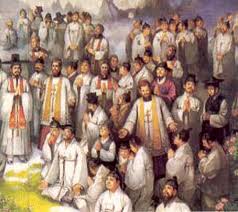
Persecutions
There were three severe persecutions of Catholics in Korea in the years 1839, 1846 and 1866-1867. Among the 102 other martyrs, 47 women and 45 men, in those years were:
- Paul Chong Hasang aged 45, a catechist, who became a seminarian;
- Columba Kim, an unmarried woman of 26, who was imprisoned, tortured with hot tools and burning coals. She and her sister Agnes were disrobed and kept for two days in a cell with condemned criminals, but were not molested; both were beheaded;
- A boy of 13, Peter Ryou, had his flesh so badly torn that he could pull off pieces and throw them at the judges; he was killed by strangulation;
- Protase Chong, a 41-year-old noble, apostasised under torture and was then set free. Later he came back, confessed his faith and was tortured to death.
- Bishop Laurence Imbert and six priests of the Paris Foreign Mission Society.

Canonisation
Pope John Paul II canonised these martyrs on 6 May 1984 during his trip to Korea. It was the first canonisation ever to take place outside of Rome. Speaking at the canonisation, Pope John Paul II said:
“The Korean Church is unique because it was founded entirely by lay people. This fledgling Church, so young and yet so strong in faith, withstood wave after wave of fierce persecution. Thus, in less than a century, it could boast of 10,000 martyrs.
The death of these martyrs became the leaven of the Church and led to today’s splendid flowering of the Church in Korea. Even today their undying spirit sustains the Christians in the Church of silence in the north of this tragically divided land.”
Faith in action
Father Andrew Kim Taegon said: “We have received baptism, entrance into the Church, and the honour of being called Christians. Yet what good will this do us if we are Christians in name only and not in fact?“
How did the people of Korea survive without the Eucharist? It is important to realise that there must be a living faith before there can be a truly beneficial celebration of the Eucharist. The sacraments are signs of God’s initiative and a response to faith already present. The sacraments increase grace and faith, but only if there is something ready to be increased.




